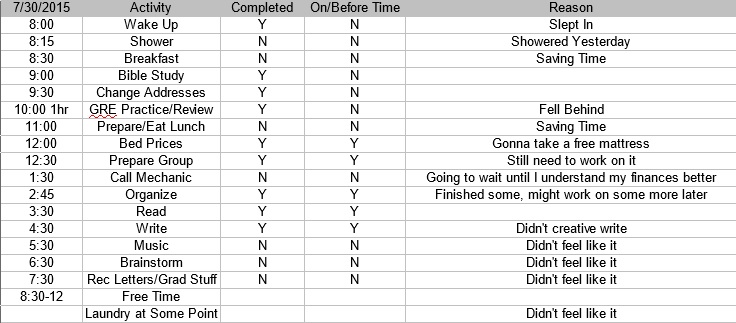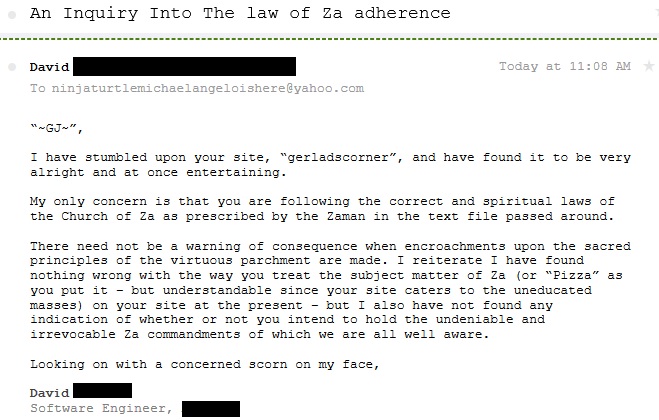I'm experiencing a surge of thoughts and feelings like never before. I feel dizzy with caffeine and a recent sinus infection but simultaneously with a whirlwind of ideas, understanding, and possibilities that had before been shut off from me. I want to attempt to remain linear and logical, but my recent understanding is lighting up asterisms of further clarity.
I began by reading "The Gift of Therapy" by Irvin Yalom. I gleaned some novel pieces of information from this but nothing that I felt shook the foundations of my understanding. Mostly what I walked away with was the importance of transparency and human connection in the therapeutic relationship (or any relationship for that matter). Somehow, I came across Marshall Rosenberg's "Nonviolent Communication: A Language of Life."
Before I read his book, I watched a three hour workshop in which he vocalized the book nearly verbatim. In both instances of watching his video and reading the book, I felt (and still feel) vistas of awareness being made known to me. It appears to me as if the human psyche has finally been flayed, it has the ring and sensation of truth. It breathes and moves. It is not like the numerous other factoids I've encountered during my last six years of psychology study and experience: a stagnant blot of ink serving no other purpose than to add weight to a decaying textbook; a breath of hot air from a mind equally empty of distinction; another parroted belief so far removed from firsthand experience and criticism that it serves only as a mirage of true understanding.
I have no idea why this approach is not more widely taught. A child can utilize it with the effectiveness of a therapist. It brings our attention back to what we really experience (ourselves and our sensations) when we sense good or bad (our emotions) and how to make that experience better (by asking). It truncates the complexity of human behavior and conflict into four simple components: observations, feelings, needs, and requests.
This revelation has changed my entire perception of the world around me. Where I was moving further and further into isolation, desperation, and contempt for the world around me, all I see now are people just like me who are aloof to my requests until I state them clearly, and decline only when it directly threatens a need of their own. There are caveats to this but I don't want to take away from how profoundly this has driven my train of thought since encountering it.
I now see opportunity with individuals I had labeled as stubborn. I feel hope in getting what I need where before I only saw submission and rebellion. I even feel comfortable asking, because I can state it in a way where nobody has to be at odds and I only express feelings, which don't have to be substantiated or defended.
I do still have some reservations as in the case of extreme personality types. I'm still willing to try, though I feel a sense of apprehension in becoming vulnerable with people who appear to have a reactionary instinct to attack perceived weakness. I did say that I was not afraid of asking anymore, but with these individuals I still do have a fear. It's a fear that I won't feel connected once I reveal myself, though I also have a simultaneous fear that the connection will be uncomfortably strong. I don't know how to deal with these types and I usually like to defer to avoidance, but even with these, I'm gainaing a sense of a willingness to try. This is how much I believe in this, because it's not about faith. I feel its truth.
When we're honest about what we're perceiving and what's going on inside of us and what we really need out of a situation, we speak a universal language that no one can argue with. We're not speaking English when we speak NVC. We're speaking Human, something that all of us can tap into. I do still withhold judgment for more extreme situations, but even with those, there's a need that they're asking to have met. I'm just unsure of whether they're able to ask appropriately for it and hear a polite no.
—MOVING ON-
I'm going to forego the multitude of "I think"s that will break up the following discussion. Just understand that I realize I am speaking from a point of opinion and not well-researched authority when I talk about psychosis, schizophrenia, and personality disorders. The next part is mainly my thoughts out loud, though I also don't say this with the intention of diminishing their distinction and veracity either.
I am growing in support of environmental and (autonomous) mental factors on human maturation and expression. Certainly there are deviations from this concerning developmental disorders and neurological defects that undeniably exist. Though these are readily apparent in their manifestation of outward characteristics and behavior and even these do not completely escape the human compass of needs, feelings, and expressions. Perhaps I'm being too vague.
When we see a person who is otherwise of an average intelligence, does not suffer from some form of cognitive deficit or damage to the senses such as dementia or severe autism, we can assume that whatever psychological difficulties they are experiencing are certainly due to environmental encounters and how they've been incorporated into the mind of the individual in question. What do I mean by all of this?
Someone suffering from PTSD is still living in the life-threatening moment of fear within their mind. There was an extreme episode (or perceivably extreme from the standpoint of the experiencer) of an environmental stimulus that appeared life-threatening. This event has since super-imposed itself upon most if not all future experiences the individual will encounter until the issue is remedied. What they need is a feeling of security and safety, and they need to relinquish the fear of the past (a fear that is very much in the PRESENT).
Someone suffering from depression will perceive themselves or the world around them as hopeless and futile with the only possible outcome being more pain and misery. What they need is a feeling of hope and they must become solution-focused and look inside themselves to find what it is they need to achieve that sense of hope. It comes back to how this person perceives their situation and themselves (cognitive distortions and internal voice) that affects their feelings toward experience.
A person with social anxiety feels, at the core, that either the way they're behaving or simply the way they ARE is wrong or shameful, either to themselves or others. Ultimately it is their own judgment or internalization OF other-judgment that creates this anxiety. But again we see the importance of how the situation is interepreted by the experiencer. This individual needs to find that internal voice that they're not listening to (verbally), but is talking nonstop on a deeper level (emotions) and confront their cognitive distortions about themselves and the situation.
Therefore we have situations in which a particular perception is MORE LIKELY though it does not necessarily mean that this particular perception and internalization of the situation will occur, hence differing levels of incidence with the (ostensibly) similar situation. Where am I still going with this?
I believe that we can then further attribute most, if not all, psychological disorders (not related to functional CAPACITY of the brain) which express themselves in behaviors and esteem that result in diminishing the fulfillment of the individual, are caused by environmental stimuli and the individuals internalized perceptions of those stimuli. So now we turn to psychosis, psychology's shining endorsement of chemical imbalances and their impact on behavior.
It was once postulated that a maternal parenting style labeled as "schizophrenogenic" was the causal factor in the development of schizophrenia. I haven't studied this theory extensively so I'm not completely clear on a full list of characteristics of the schizophrenogenic mother or the family system that sustains her, but I had a strong intuition that whatever traits I found would fall in line with Narcissistic Personality Disorder. I was less than surprised when I found that I was right, in that this maternal parenting style is domineering, lacks boundaries and is ultimately rejecting. In my experience with psychosis, the messages that the individual sees reflected back to them from the outside world is generally about guilt, shame, judgment, repentence, omnipotence, etc. etc. These are exactly the types of themes that would play out in a relationship between a narcissistic parent and their child.
These are not random neural impulses, this is the internalized voice of a parent that could find the cloud in any silver lining. This is a voice that one was born into. As a fish that never realizes its own wetness, this individual could never distinguish these (now internalized) voices from the one that had been chiding him his whole life. I'm going to go even further in supposition and guess that this internal voice never quite filled the need of feeling connected and accepted, and over time created a psychological tension based in anxiety that, after a period of going unresolved, led to a rupture in the person's psyche. We can further relegate the explanation of that mechanism to the brain's survival instinct and other stuff that I can't explain or measure. But this is where I leave off for now until a later time because I have to go to work.
~GJ~





